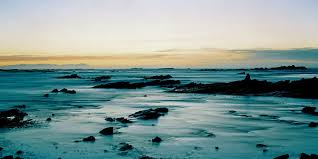Panel orders mapping of juvenile correctional facilities nationwide
Mapping
By Ibironke Ariyo
The Independent Investigative Panel on Alleged Corruption, Abuse of Power, Torture, and Other Inhumane Treatment by the Nigerian Correctional Service (NCoS), has directed a nationwide mapping of juvenile correctional facilities.
The panel also ordered submission of a comprehensive status report to the National Assembly.
Dr Uju Agomoh, Secretary of the panel, stated this on Monday in Abuja during a media interaction on the issues highlighted during the panel’s third public hearing.
Agomoh said that the day’s deliberations focused on the treatment of “illegal persons” in NCoS custody, challenges facing the service in implementing the NCoS Act, 2019, and standing orders.
This, she said, was with emphasis on Section 35 (1) and (3), Section 13 (3b) and (4), and relevant provisions of the standing orders relating to the treatment of children.
Agomoh said that clear directives were issued for a detailed status report on all custodial facilities nationwide, including “Borstal facilities” managed by the NCoS.
“Special instructions were given regarding a facility in Ilorin to determine whether it should be categorised as a hostel or halfway home.
“This is also to ensure that classification of women’s facilities follows the same standard,” she said.
Agomoh added that the panel had also ordered immediate action on water and sanitation issues in affected centres.
On the welfare of young girls in detention, the panel examined NCoS’s relationship with state agencies providing such facilities.
She said that the Panel recommended strategies to improve collaboration, especially since the service now falls under the Concurrent Legislative List.
According to her, the panel directed the NCoS to map all states to identify locations of facilities for young offenders and submit this information promptly to Parliament.
“The day’s sessions also reviewed the informal sector, focusing on the need for proper oversight of facilities not governed by the Community Council, and on ensuring correctional measures are effectively implemented in such places,” she said.
Agomoh said that data management within the NCoS was commended, noting progress supported by the Rule of Law and Anti-Corruption Programme under the International Convention on the Rights of Persons with Disabilities.
This, she said included provision of data equipment and logistical support for Parliament.
She, however, stressed that more work was required, particularly on enforcing Sections 21 and 22 of the NCoS Act on the four types of visits to custodial centres, and Section 23 on designated visiting centres.
She also said that the resources required for these centres must be identified and included in the national budget.
“The panel also flagged the need to reflect staffing requirements for Borstal facilities and other resources in the 2024 budget, as well as the provision of adequate facilities for proper treatment of non-offenders in custody, “she said.
Agomoh said that there was also a call for the collection of statistics on remand homes and on interventions by faith-based institutions, as no such data currently existed.
She added that the panel advocated greater support for diversion programmes, wider use of non-custodial measures, and strengthened oversight mechanisms for continuous improvement.
The secretary said that the discussions were intense and had drawn inputs and solutions from the NCoS, Civil Society Organisations (CSOs), and the media, with one more participation session scheduled for Tuesday.(NAN) (www.nannews.ng)
Edited by Yakubu Uba





